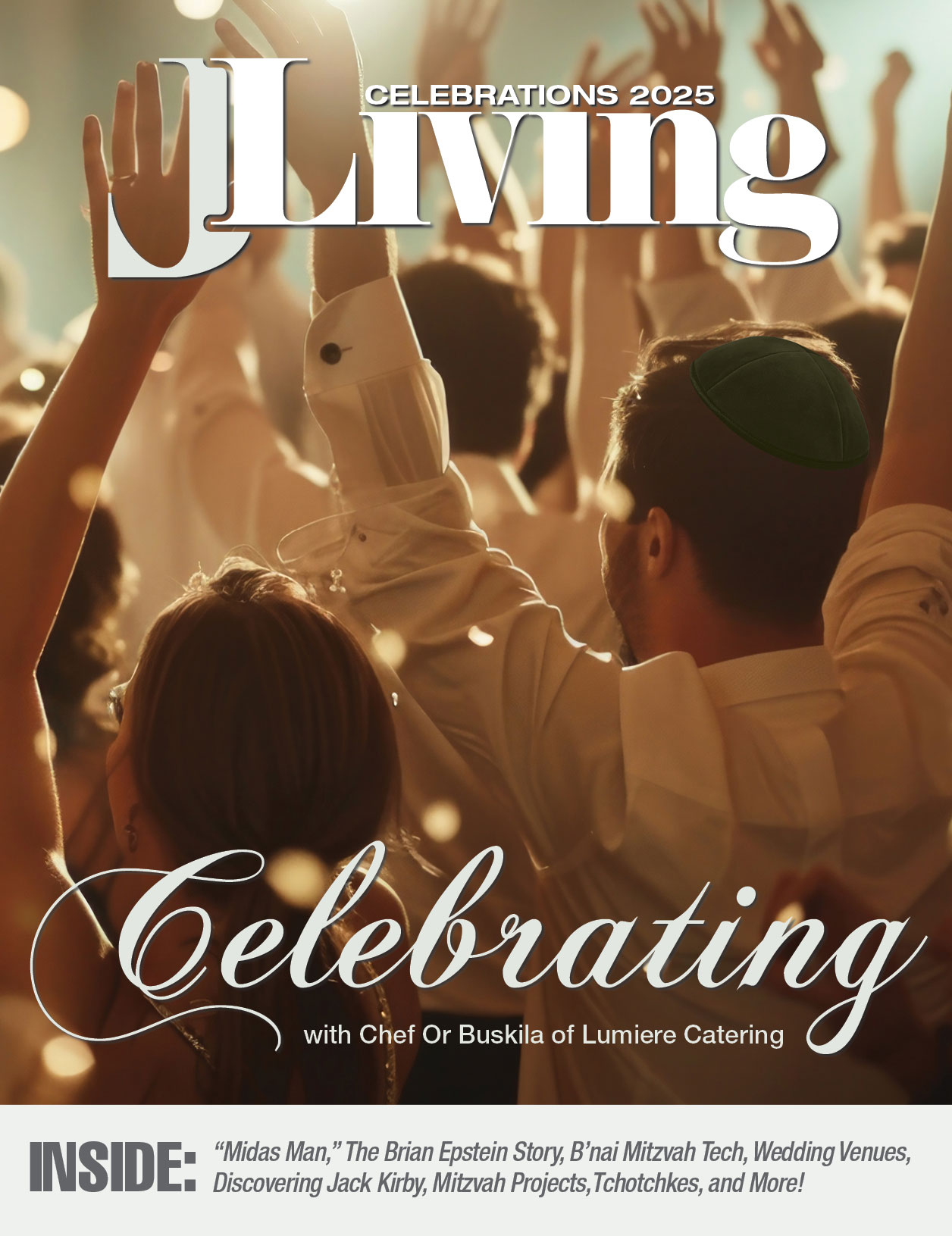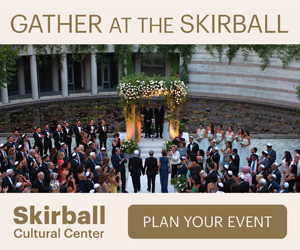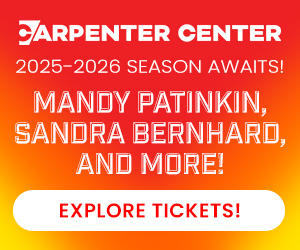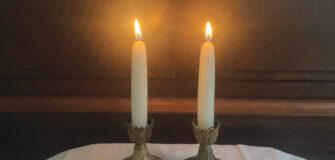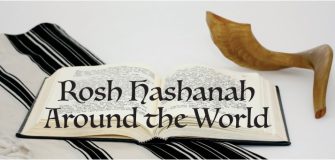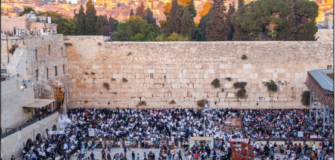8 Nights of Being Present

Everywhere you go right now, the world is telling you to buy presents. You pick up a gallon of milk at the grocery store and there are little tchotchkes by the register. You go to the superstores and they have supersized presents – the new bike, the new basketball hoop, the new video game.
Hanukkah has become our holiday of presents. While Hanukkah is a time of joy and celebration, there is nothing innately as part of the holiday that advocates the giving of presents. In fact, the argument could be made that Purim is actually our gift giving holiday when we are encouraged to give gifts. It is truly quite a modern phenomenon that we give presents during Hanukkah.
Now, I am not going to advocate getting rid of presents for Hanukkah. Personally, I love getting and giving presents for the holiday. It is fun and brings a feeling of family and fun. As Jews in America, there is a feeling of being a part of greater society. And truly, who doesn’t love a good deal on a TV?
So we embrace the giving of gifts. Giving is actually quite meaningful. We make time for the ceremony of gift giving. We carve out time to share in these special moments. It is actually the essence of why we celebrate holidays – to bring and spread joy. If Hanukkah is a holiday of light, then the light of our loved one’s eyes as they open the gift they wanted is the light that can power us through the darkness.
But let’s consider elevating the experience. Hanukkah can be so much more than the holiday when we give presents. In fact, when you ask people what they love most about the holiday, they talk about time with family and memories of lighting the chanukiah.
They talk about the joy of giving and receiving gifts, not necessarily the gifts themselves. Joy is baked into the holiday, both literally (who doesn’t love sufganiyot, jelly donuts?) and figuratively. But with a little more intention, we can add more meaning into our Hanukkah experience.
One way is already built into the holiday. When we light candles, we create a time to thank God for this special time of year. Each day of lighting an additional candle brings more light into our lives. Just saying a blessing opens the opportunity for gratitude.
Another way is to create a conversation for each night of the holiday by creating a kavanah for each day. “Kavanah” means intention. When we set an intention, we are creating space for holiness and connection. We open ourselves up to possibilities of deeper conversations and personal exploration. You may be wondering, but how do I set an intention or kavanah for each day of Hanukkah? Below is a list of questions that can be used as a kavanah to help direct your intentions. There is one for each night of the holiday.
Discussion Starters:
1. Togetherness is part of our family when…
Consider a special time when you felt connected as a family. Maybe it was a vacation?
Maybe it was a special dinner? Defining those experiences emphasizes connection and shares
those moments you value.
2. Sharing is part of our family when…
We do say that sharing is caring. Pinpointing the positive experiences of sharing encourages this positive behavior. Sharing is an essential part of our interactions with all people and when we raise up this value, we are hopeful that we will see a return on this behavior.
3. Loving is part of our family when…
Do we say that we love each other enough? Identifying those moments when we have
felt love is essential for creating love language. Articulating love builds the ability to be open. When we speak in the language of love, we open our hearts to others. We also learn that love is not limited. It is endless and eternal.
4. Fun is part of our family when…
Families are fun! We tend to get bogged down in errands, chores and the mundane.
Emphasizing the fun we have together shows that while being a part of a family is work, we also share in so much joy.
5. Celebration is part of our family when…
Celebration is taking a moment in time and expanding it. Having more moments punctuated
throughout our lives actually gives us the perspective of living longer. Think about a particular celebration – a graduation, birthday party, or wedding ceremony. In just a few hours, a lifetime passes by with memories to share forever. Celebrations take moments and expand them allowing us to expand time.
6. Mitzvot/Good Deeds are part of our family when…
Giving back is just as important as giving to. Reaching out to others in need puts our own lives into perspective. When we recognize that there are those in greater need than ourselves, we
bring gratitude into our lives.
7. Learning is part of our family when…
Judaism is a religion of knowledge. The importance of learning is embedded in our daily prayers, “And you should teach it to your children” is said during every prayer service.
Learning together not only encourages the development of knowledge but shows ouryoung people that learning is never finished and there is always something to gain.
8. Tradition is a part of our family when…
In these Jewish moments, it is important to connect back to who we are as a Jewish people. Establishing and identifying those times when we have repetitive behavior for a certain reason gives it meaning. We do not just do something for the sake of doing it.
We bring these moments into our lives because of the meaning it builds within us.
Setting an intention is valuable for our lives. It takes these moments and makes them holy. Holiness is not just about saying prayers or doing what our tradition tells us to do.
Holiness is creating a space for deep connection, connecting to our shared history, the transcendent nature of God and our common humanity. It is a lofty goal, but with intention, we can glimpse these moments in our lives.
In this time, when the days seem to blur one into the other, it is valuable to take time to reflect and share. While we appreciate what we get and what we receive, we can achieve an elevated sense of presence. When we achieve presence, we are able to truly express gratitude for the true gifts in our lives.

